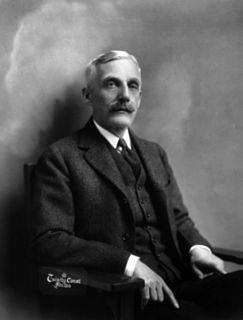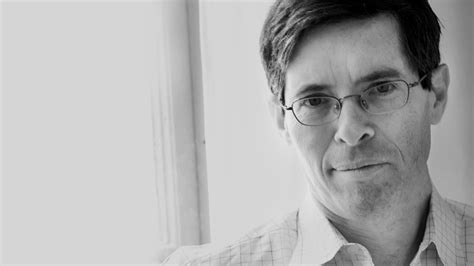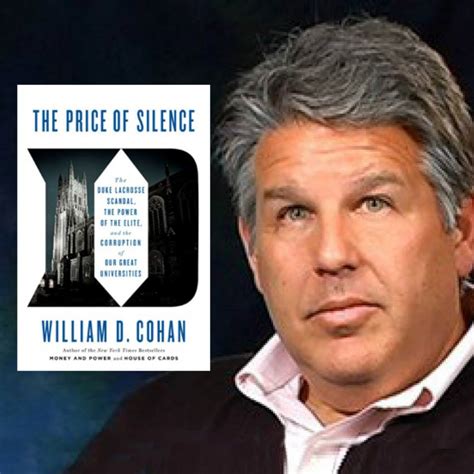Top 162 Securities Quotes & Sayings - Page 3
Explore popular Securities quotes.
Last updated on December 18, 2024.
There is nothing that we can properly call our own but our time, and yet everybody fools us out of it who has a mind to do it. If a man borrows a paltry sum of money, there must needs be bonds and securities, and every common civility is presently charged upon account. But he who has my time thinks he owes me nothing for it, though it be a debt that gratitude itself can never repay.
Anyone believing the TPP is good for Americans take note: The foreign subsidiaries of U.S.-based corporations could just as easily challenge any U.S. government regulation they claim unfairly diminishes their profits - say, a regulation protecting American consumers from unsafe products or unhealthy foods, investors from fraudulent securities or predatory lending, workers from unsafe working conditions, taxpayers from another bailout of Wall Street, or the environment from toxic emissions.
The power of perpetuating our property in our families is one of the most valuable and interesting circumstances belonging to it, and that which tends most to the perpetuation of society itself. It makes our weakness subservient to our virtue; it grafts benevolence even upon avarice. The possession of family wealth and of the distinction which attends hereditary possessions (as most concerned in it,) are the natural securities for this transmission.
There is only one institution that can arrogate to itself the power legally to trade by means of rubber checks: the government. And it is the only institution that can mortgage your future without your knowledge or consent: government securities (and paper money) are promissory notes on future tax receipts, i.e., on your future production.
No value is higher than self-esteem, but you've invested it in counterfeit securities-and now your morality has caught you in a trap where you are forced to protect your self-esteem by fighting for the creed of self-destruction. The grim joke is on you: that need of self-esteem, which you're unable to explain or to define, belongs to my morality, not yours; it's the objective token of my code, it is my proof within your own soul.
Maybe [the Republicans] 'll find ways around it, but the financial system of the world depends very heavily on the credibility of the US Treasury Department. US Treasury securities are what's called "good as gold"; they're the basis of international finance, and if the government can't uphold them, if they become valueless, the effect on the international financial system could be quite severe. But in order to destroy a limited health-care law, the right-wing Republicans, the reactionary Republicans, are willing to do that.
In that, we agreed with Andrew Carnegie, who said that huge fortunes that flow in large part from society should in large part be returned to society. In my case, the ability to allocate capital would have had little utility unless I lived in a rich, populous country in which enormous quantities of marketable securities were traded and were sometimes ridiculously mispriced. And fortunately for me, that describes the U.S. in the second half of the last century.
There is a bit of a problem with the match between derivative securities markets and the primary markets. We have long ago instituted principles, essentially high margin requirements, to prevent certain instabilities in the stock market, and I think they're basically correct. The trouble is that there's a linkage, let's say, between something like the stock market and the index futures markets, and the fact that the margin requirements are very different, for example, played some role in the October '87 crash.
The history of taxation shows that taxes which are inherently excessive are not paid. The high rates inevitably put pressure upon the taxpayer to withdraw his capital from productive business and invest it in tax-exempt securities or to find other lawful methods of avoiding the realization of taxable income. The result is that the sources of taxation are drying up; wealth is failing to carry its share of the tax burden; and capital is being diverted into channels which yield neither revenue to the Government nor profit to the people.
Regulatory changes have forced banks to closely examine their liquidity planning and to internalize the costs of liquidity provision. The costs of committed liquidity facilities will be passed on to clearing members. These costs are perhaps highest in clearing Treasury securities, where liquidity needs can be especially large.
You have to turn over a lot of rocks to find those little anomalies. You have to find the companies that are off the map - way off the map. You may find local companies that have nothing wrong with them at all. A company that I found, Western Insurance Securities, was trading for $3/share when it was earning $20/share!! I tried to buy up as much of it as possible. No one will tell you about these businesses. You have to find them.
All the real money in investment will have to be made as most of it has been in the past not out of buying and selling but out of owning and holding securities, receiving interests and dividends therein, and benefiting from their long-term increases in value. Hence stockholder's major energies and wisdom as investors should be directed toward assuring themselves of the best operating results from their corporations. This in turn means assuring themselves of fully honest and competent managements.
If my sense of security lies in my reputation or in the things I have, my life will be in a constant state of threat and jeopardy-a fear that these possessions may be lost, stolen, or devalued. If I'm in the presence of someone of greater net worth, fame, or status, I feel inferior. If I'm in the presence of someone of lesser net worth, fame or status, I feel superior. My sense of self-worth constantly fluctu-ates. I don't have any sense of constancy, anchorage, or persistent selfhood. I am constantly trying to protect and insure my assets, properties, securities, position, or reputation.
There is no doubt that the Fed's large-scale asset purchases have caused major increases in a number of asset prices in the economy. This is especially true of mortgage backed securities and corporate bonds, and quite possibly of equities as well. For those people and institutions holding those things, the run up in prices has been a wealth bonanza.
Though business conditions may change, corporations and securities may change, and financial institutions and regulations may change, human nature remains the same. Thus the important and difficult part of sound investment, which hinges upon the investor's own temperament and attitude, is not much affected by the passing years.
As I have mentioned before, we cannot make the same sort of money out of permanent ownership of controlled businesses that can be made from buying and reselling such businesses, or from skilled investment in marketable securities. Nevertheless, they offer a pleasant long term form of activity (when conducted in conjunction with high grade, able people) at satisfactory rates of return.
More investment trusts securities were offered in September of 1929 even than in August - the total was above $600 million. However, the nearly simultaneous promotion of Shenandoah and Blue Ridge was to stand as the pinnacle of new era finance. It is difficult not to marvel at the imagination which was implicit in this gargantuan insanity. If there must be madness something may be said for having it on a heroic scale.
As soon as Mr. Roosevelt took office, the Federal Reserve began to buy government securities at the rate of ten million dollars a week for 10 weeks, and created one hundred million dollars in new [checkbook] currency, which alleviated the critical famine of money and credit, and the factories started hiring people again.
I have a feeling-as compelling as a religious conviction-that if industry will constantly pass on to the worker and the customer all the savings of labor-saving machinery and invention, rather than siphon them off into the pools of watered securities, it will by that process keep distribution and production in balance and go as far toward Utopia as our poor human natures will go or be driven.
Buffett's uncommon urge to chronicle made him a unique character in American life, not only a great capitalist but the Great Explainer of American capitalism. He taught a generation how to think about business, and he showed that securities were not just tokens like the Monopoly flatiron, and that investing need not be a game of chance. It was also a logical, commonsensical enterprise, like the tangible businesses beneath. He stripped Wall Street of its mystery and rejoined it to Main Street -- a mythical or disappearing place, perhaps, but one that is comprehensible to the ordinary American.
The dirty little secret of what used to be known as Wall Street securities firms-Goldman Sachs, Morgan Stanley, Merrill Lynch, Lehman Brothers, and Bear Stearns-was that every one of them funded their business in this way to varying degress, and every one of them was always just twenty-four hours away from a funding crisis. The key to day-to-day survival was the skill with which Wall Street executives managed their firms' ongoing reputation in the marketplace.
Global central banks are working hard to lift their economies through an aggressively easy monetary policy. The ECB [European Central Bank] and BOJ [Bank of Japan] are buying tens of billions of bonds and other financial securities each month in an effort to stimulate their economies, which is pushing down rates everywhere, including in the U.S.
A young financial writer once brought ridicule upon himself by stating that a certain company had nothing to commend it except excellent earnings. Well, there are companies whose earnings are excellent but whose stocks I would never recommend. In selecting investments, I attach prime importance to the men behind them. I'd rather buy brains and character than earnings. Earnings can be good one year and poor the next. But if you put your money into securities run by men combining conspicuous brains and unimpeachable character, the likelihood is that the financial results will prove satisfactory.
I exist," murmurs someone whose name is Everyone. "I'm young and in love; I am old and I want rest; I work, I prosper, I do good business, I have houses to rent, money in State Securities; I am happy, I have wife and children; I like all these things and I want to go on living, so leave me alone."... There are moments when all this casts a deep chill on the large-minded pioneers of the human race.
If the dollar weakens, then presumably all the things that we make in the United States - Buicks, for instance - can be sold cheap all over the world, and everyone will be buying our goods, and we'll get all sorts of yen-denominated, or yuan-denominated, or euro-denominated securities, and then everybody else will be worried.
We are convinced that the intelligent investor can derive satisfactory results from pricing of either type (market timing or fundamental analysis via price). We are equally sure that if he places his emphasis on timing, in the sense of forecasting, he will end up as a speculator and with a speculator's financial results." And "The speculator's primary interest lies in anticipating and profiting from market fluctuations. The investor's primary interest lies in acquiring and holding suitable securities at suitable prices.
When all of our idols are taken away, all our securities and defense mechanisms,
we find out who we really are. We’re so little, so poor, so emptyand a shock to ourselves. But the Biblical God takes away our shame,
and we are eventually able to present ourselves in an honest and humble form.
Then we find out who we really are and who God is for usand it is more than enough. That is how an enslaved people became God’s people, Israel.
We were not foolish enough to try to make a currency [backed by] gold of which we had none, but for every mark that was issued we required the equivalent of a mark's worth of work done or goods produced ... we laugh at the time our national financiers held the view that the value of a currency is regulated by the gold and securities lying in the vaults of a state bank.
For out of this modern civilization economic royalists carved new dynasties. New kingdoms were built upon concentration of control over material things. Through new uses of corporations, banks and securities, new machinery of industry and agriculture, of labor and capital - all undreamed of by the Fathers - the whole structure of modern life was impressed into this royal service.
The spiritual task of life is to feed hope. Hope is not something to be found outside of us. It lies in the spiritual life we cultivate within. The whole purpose of wrestling with life is to be transformed into the self we are meant to become, to step out of the confines of our false securities and allow our creating God to go on creating. In us.
No one pushed harder than Congressman Barney Frank to force banks and other financial institutions to reduce their mortgage lending standards, in order to meet government-set goals for more home ownership. Those lower mortgage lending standards are at the heart of the increased riskiness of the mortgage market and of the collapse of Wall Street securities based on those risky mortgages.
The trouble is that the risks that are being hedged very well by new financial securities are financial risks. And it appears to me that the real things you want to hedge are real risks, for example, risks in innovation. The fact is that you'd like companies to be able to take bigger chances. Presumably one obstacle to successful R&D, particularly when the costs are large, are the risks involved.
The most realistic distinction between the investor and the speculator is found in their attitude toward stock-market movements. The speculator's primary interest lies in anticipating and profiting from market fluctuations. The investor's primary interest lies in acquiring and holding suitable securities at suitable prices. Market movements are important to him in a practical sense, because they alternately create low price levels at which he would be wise to buy and high price levels at which he certainly should refrain from buying and probably would be wise to sell.
If we assume that there are normal or standard income results to be obtained from investing money in securities, then the role of the adviser can be more readily established. He will use his superior training and experience to protect his clients against mistakes and to make sure that they obtain the results to which their money is entitled.
There's only one thing that all of the central banks control and that is the base, their own liability, and they can control that in various ways. They can control it directly by open market operations, buying and selling government securities or other assets, for example, buying and selling gold, or they can control it indirectly by altering the rate at which banks lend to one another.
Securities based on risky mortgages are what toppled financial institutions but it was the government that made the mortgages risky in the first place, by making home-ownership statistics the holy grail, for which everything else was to be sacrificed, including commonsense standards for making home loans.
Sometimes markets err big time. Markets erred when they gave America Online the currency to buy Time Warner. They erred when they bet against George Soros and for the British pound. And they are erring right now by continuing to float along as if the most significant credit bubble history has ever seen does not exist. Opportunities are rare, and large opportunities on which one can put nearly unlimited capital to work at tremendous potential returns are even more rare. Selectively shorting the most problematic mortgage-backed securities in history today amounts to just such an opportunity.






























